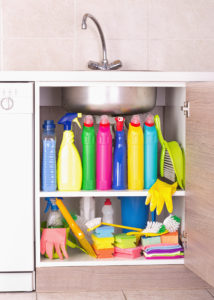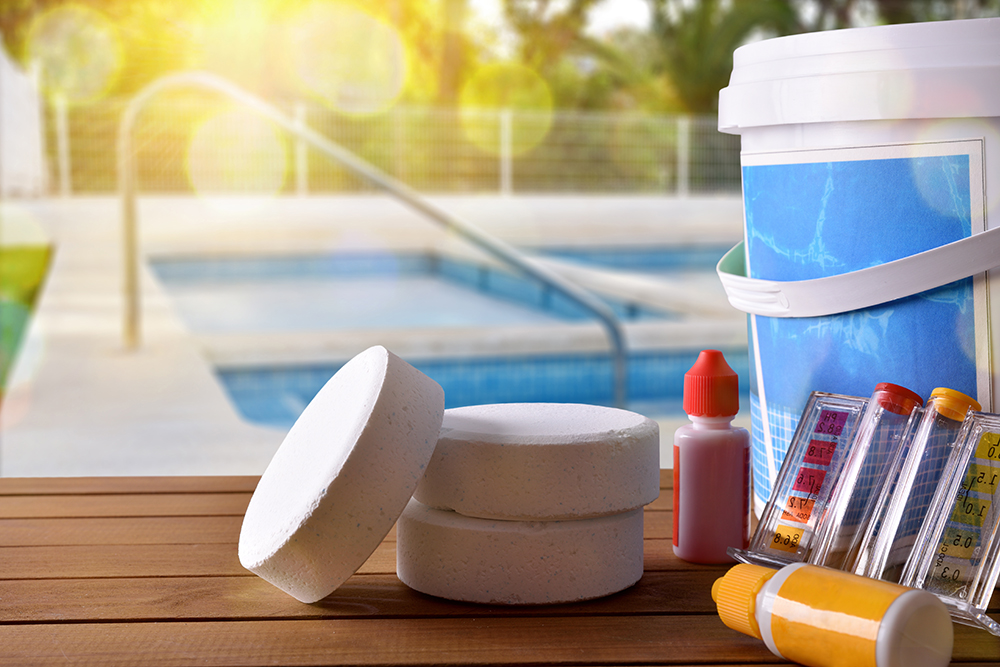Often times, it’s more economical to buy your pool chemicals in bulk. Many manufacturers offer consumers a better deal when they purchase more chemicals at one time. The plus side is that you won’t need to worry about running low anytime soon. The caveat is that, like food, pool chemicals have expirations dates. The difference between pool chemicals and food is that food will go bad. Chemicals don’t go bad per se, but they will became less effective as time goes on. So, which pool chemicals are more prone to waste and which ones are not? In this blog, we’ll cover the high level truth about pool chemicals.
Pool Chemicals & Shelf Life
Every chemical you potentially use in your pool will have a shelf life. Some chemicals have a longer shelf life, while others will have relatively shorter shelf lives. It’s important to understand which chemicals for your pool are likely to expire or lose efficacy before you run out of them and vice versa.
In general, both liquid acids and dry chemicals will last 2-3 years, as long as they are stored properly. Proper storage means that they must be in a regulated environment, with no exposure to moisture, especially for dry chemicals. Liquid chemicals, on the other hand, usually have a shorter shelf life. For example, if you use chlorine to sanitize your Florida pool, you will find that liquid chlorine is less effective over a shorter amount of time than dry chlorine is. Liquid shock treatments may only be good for a few months before they become less effective.
There are other pool chemicals that do not keep well, even if stored properly. For example, reagents and test strips have a relatively short shelf life. They may only be useful for a year or two, depending on their quality. If these are used after they have started to go “bad,” they can give inaccurate results when you test your water. These should definitely be used or replaced before they expire. A good time to replace reagents and test strips is during the winter time, when you have closed your pool for the season.
 Storage of Pool Chemicals
Storage of Pool Chemicals
Again, to get the best shelf life out of your chemicals, you’ll want to make sure you’re storing them properly. If you have a safe place to store your chemicals indoors, make use of it. Solids and liquids should be stored in separate places. Chemicals that might react badly if they’re mixed should also be stored separately. This both prevents dry chemicals from being tainted by the moisture in liquid chemicals and prevents potentially dangerous chemical reactions from occurring in your storage space.
The best place to store your pool chemicals will stay between 40 and 95 degrees, and it should be dry, with plenty of ventilation. Ensure all chemicals are kept away from children and pets and the lids are fastened. You don’t want fumes to escape and circulate through your garage or worse, your home.
If you find your chemicals have become less effective, you should dispose of them properly. Treat them the same you would for hazardous waste and take them to the nearest hazardous waste facility. Do not throw them away like ordinary trash or pour them down your drain or toilet. You can imagine we’ve heard it all. Do not simply pour them into your pool and assume they’ll work together in harmony. That is a big mistake that could seriously harm the balance of your water and, by extension, your equipment.
Most people step into a pool without thinking about the potential germs or chemicals. Whether or not those germs or chemicals could lead to an illness may never cross their mind.
However, as a pool owner, it’s your job to worry about those recreational water illnesses and to look for ways to prevent them. These illnesses are spread by swallowing, breathing in, or even via contact with water that has been contaminated by a chemical or bacteria. They are most often found in public swimming pools, lakes and rivers, and water parks, but they can exist in your pool, too. That’s why having a strong maintenance plan in place will prevent a lot of problems!
Erik’s Aquatic Care is always here to answer questions you may have as a current or future pool owner. Cheers!

